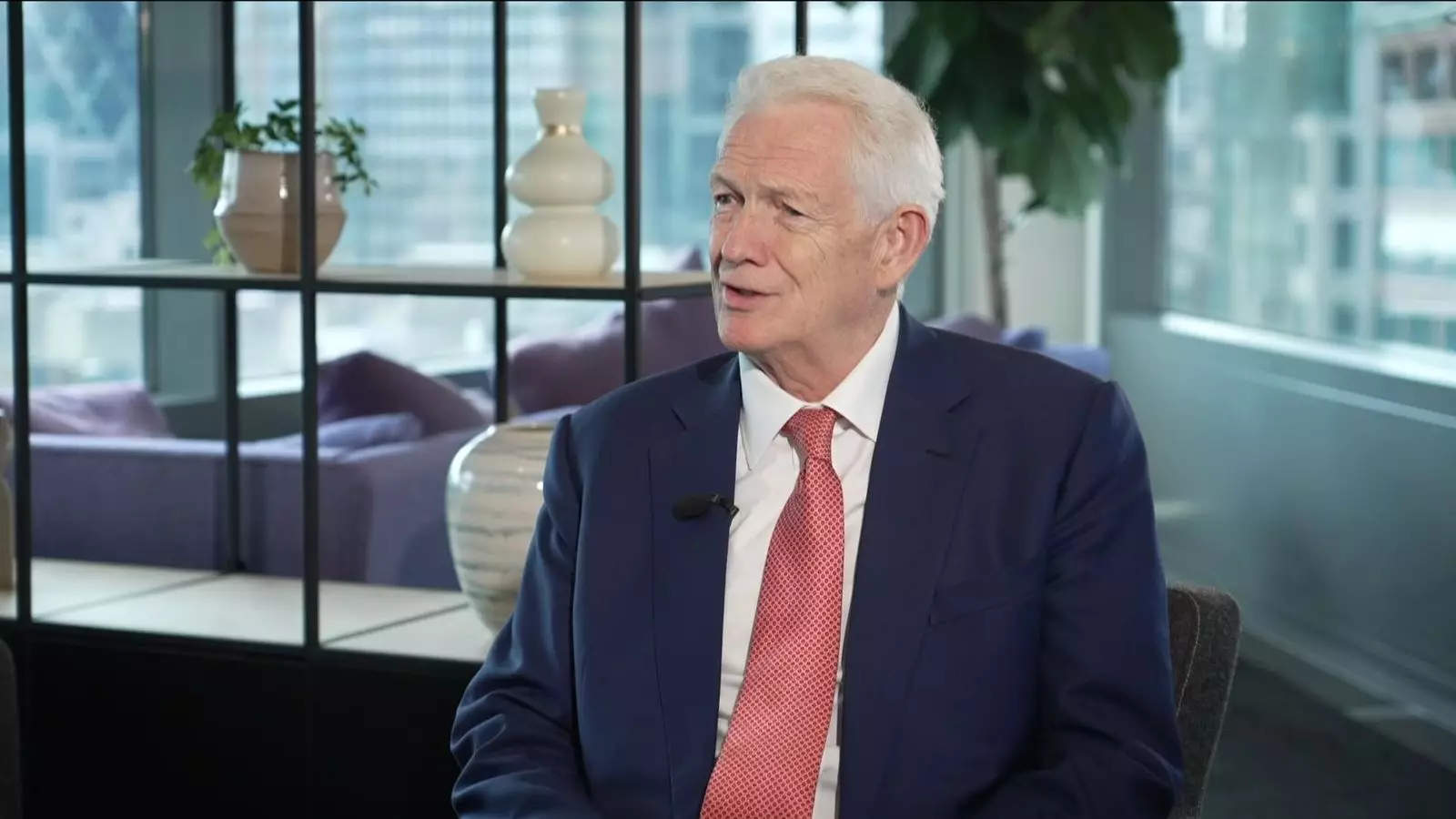In a curious twist of fate, Rick Haythornthwaite, Chairman of NatWest, has taken it upon himself to publicly thank the British taxpayer for bailing out the bank during the catastrophic financial crash of 2008. This sentiment evokes a complex mix of emotions: gratitude, certainly, but also a deep-seated frustration over the subsequent events that were perhaps predictable if only the lessons of those tumultuous times had been thoroughly internalized. As NatWest emerges from the shadow of state ownership, one cannot help but question the sincerity of this acknowledgment against a backdrop of current calls for regulatory rollbacks.
It is a bold claim to say that the bank “has not forgotten” the lessons of the past, especially when it stands at a crossroads, advocating for the deregulation that initially led to its downfall. The juxtaposition of Haythornthwaite’s comments against the broader historical context presents a narrative fraught with irony. Were these lessons genuinely learned, or merely swept under the rug in favor of a more lucrative future?
The Illusions of a Safer Bank
Haythornthwaite asserts that the bailout not only “rescued” NatWest but also provided an opportunity for a major restructuring. While the bank may have indeed transformed, morphed into a “safer and stronger” entity, the reality remains that structural integrity does not erase the financial trauma inflicted on taxpayers. The notion that a bank can rise from its ashes without acknowledging the fallout it caused is not just naïve; it is obscenely disingenuous.
As the financial landscape shifts, the specter of that £46 billion bailout looms large, casting long shadows over every boardroom decision and regulatory conversation. The government’s acceptance of a staggering £10.5 billion loss is a bitter pill for many, particularly when juxtaposed against executive privilege and the subsequent demands for deregulation. While Haythornthwaite may speak of ethical management, one could argue that real ethics would dictate a commitment to long-term stability rather than chasing fleeting profits.
Regulatory Pendulum or Regulatory Farce?
The Chairman’s assertion that the regulatory “pendulum may have swung too far” presents a stark reminder of a society’s eternal struggle between growth and security. However, one cannot help but wonder if this perspective arises from a position of privilege—protected by the very regulations he now questions. The original regulations were forged in response to an economic calamity that obliterated thousands of jobs and left countless families reeling. To suggest that we must lighten the regulatory load is not just an appeal for growth but a reckless gambit that risks repeating past mistakes.
Even now, as voices like Rachel Reeves in government consider loosening the regulatory noose around the necks of banks, the dangers become alarmingly clear. The regulatory framework post-2008 was designed not only to safeguard banks but to protect the everyday citizen, the small business owner, and the conscientious saver from the whims of reckless financial speculation. Any retreat into the previous lax standards could set a perilous precedent, igniting concerns that have barely begun to smolder in the public conscious.
The True Cost of Deregulation
NatWest’s call for elimination of ring-fencing and other robust measures has raised eyebrows and prompted questions about the underlying motives. While the desire to foster growth is laudable, one must consider the real cost of embracing that view without adequate safeguards in place. This is not about igniting a populist revolt against financial institutions; it’s about ensuring that history does not possess a disquieting habit of repeating itself.
Advocating for deregulation because it allows banks to be more “competitive” is a narrative fraught with ambiguity. True competitiveness should not arise from eliminating protections for consumers; instead, it should come from a commitment to ethical banking practices that prioritize community welfare over shareholder wealth. In the grand scheme of economic recovery and growth, we must not lose sight of the valuable lessons etched into the annals of our recent past.
As NatWest sells its final government stake and flips the page on a chapter soaked in public discontent, it is imperative to question the true intentions behind the flow of gratitude. While Rick Haythornthwaite may paint a picture of reflection and acknowledgment, the possibilities he pursues can very well undermine the earnest lessons learned in the crucible of the 2008 financial crisis.


Leave a Reply